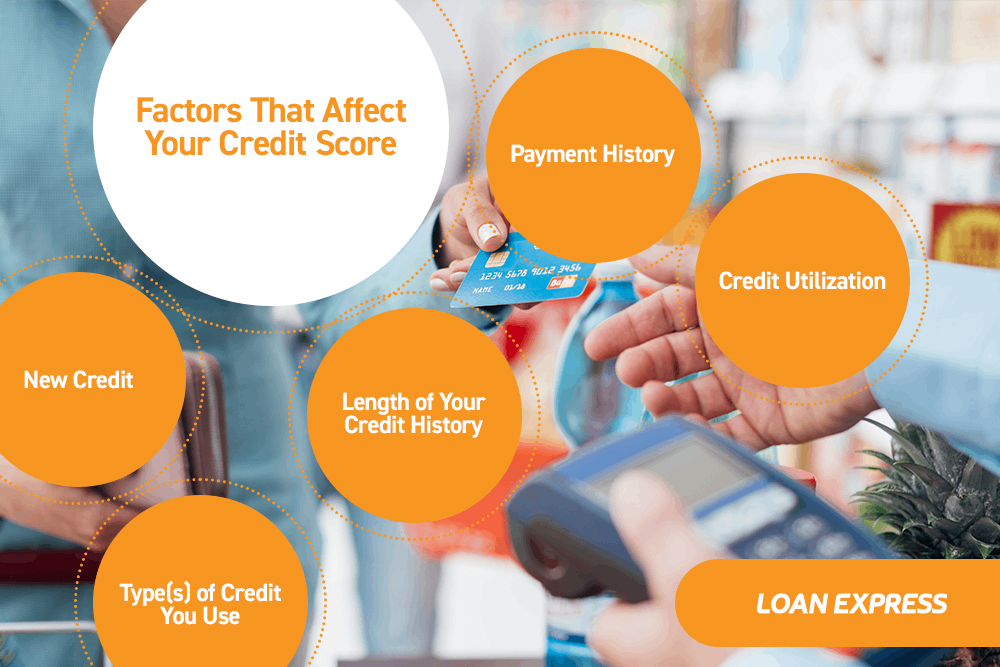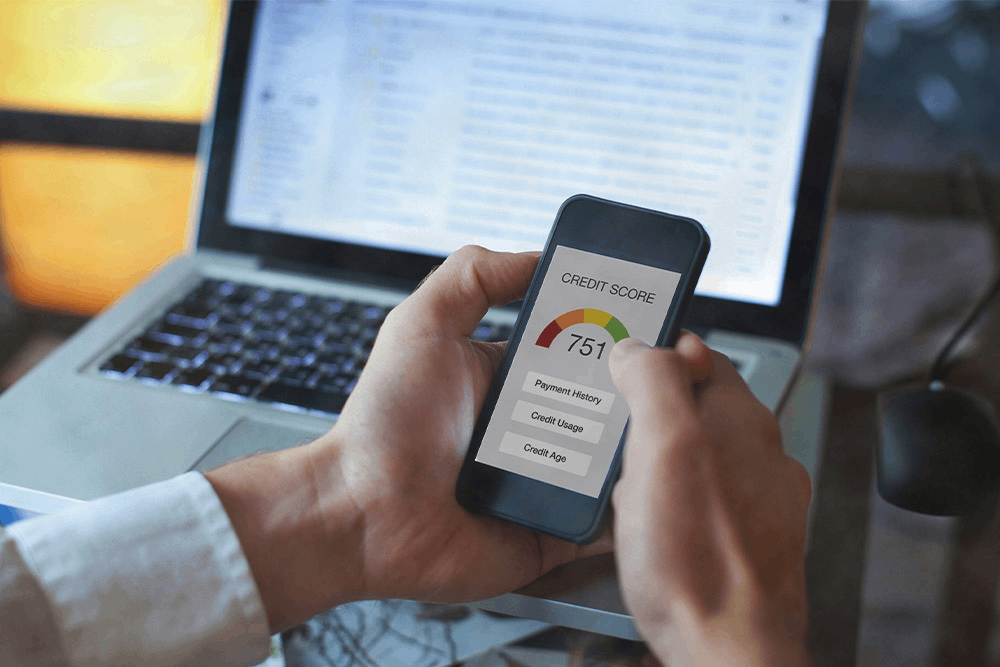Loan express does not require credit checks, decline a loan based off a credit check, nor do credit checks affect the minimum approved amount of the loan. The following article is purely for educational purposes.
Most Canadians have a credit score that falls within the ‘good’ to ‘very good’ range, based on data from Equifax and TransUnion. You may wonder where you fit into that picture and what your three-digit score says about your financial health. When it comes to your finances, a strong credit score can open many doors, from better loan rates to easier rental approvals. A lender uses this number to gauge your creditworthiness, so a higher score often translates to more favourable financial opportunities. For anyone who wants to borrow money or build a secure financial future, it is essential to know what makes a good credit score in Canada. Let’s explore what a credit score is, why it matters, the specific credit score tiers Canada uses, and how you can improve your credit score in Canada.
Your Canadian Credit Score
Your credit score is a vital component of your financial identity in Canada. The country’s two main credit bureaus, Equifax and TransUnion, calculate this number by gathering information about how you use credit from various lenders like banks, credit card companies, and collection agencies. Lenders, landlords, and even some employers use your score to quickly assess your financial reliability. A strong score can help you get approved for loans or qualify for more competitive interest rates. On the other hand, a lower score might present some challenges. Your score is not static. It changes over time based on your payment habits and how much debt you carry. Understanding what a good credit score in Canada is begins with a clear view of where you currently stand and what actions influence your number.
What Exactly is a Credit Score?
Defining Your Credit Score
A credit score is a three-digit number that ranges from 300 to 900. It serves as a numerical representation of your creditworthiness. You can think of it as a grade for your financial behaviour. The information comes from your credit report, which is a detailed record of your credit history. While your credit report lists your accounts, payment history, and public records, your score summarizes all that information into one number. The two credit bureaus in Canada, Equifax and TransUnion, each calculate their own version of your score. They use scoring models from companies like FICO and VantageScore, as well as their own unique algorithms. For that reason, you may have a different score from each bureau. Lenders then use these scores to make fast and informed decisions about credit applications.
Factors Influencing Your Credit Score

To improve your credit score in Canada, you must first know the key factors that credit bureaus use to calculate it. Several elements of your financial behaviour have an impact, with some carrying more weight than others.
- Payment History: Your record of paying bills on time is the most important factor, making up about 35% of your score. Lenders look at this history to predict if you will meet future financial obligations. Late or missed payments, even if you just pay less than the minimum amount, can have a negative effect on your score.
- Credit Utilization: The amount of debt you owe compared to your available credit is the second most crucial factor, accounting for roughly 30% of your score. Lenders prefer to see a lower ratio of debt to available credit. For example, if you consistently use more than 60% of your credit limit on a card or line of credit, it will likely lower your score.
- Length of Credit History: The age of your credit accounts also plays a part. A longer history gives lenders a more complete view of your financial habits over time. This factor considers the age of your oldest account, your newest account, and the average age of all your accounts.
- New Credit: The number of new credit accounts you open or apply for influences your score. When you apply for a loan or credit card, it can result in a hard inquiry on your report. Several inquiries in a short time may lower your score, especially if you have a short credit history to begin with.
Why Does Your Credit Score Matter

Your credit score plays a significant role in your financial life because it directly influences a lender’s decision to approve you for credit. When you apply for a mortgage, a car loan, or a new credit card, lenders check your score to assess their risk. A high score suggests you are a reliable borrower, which can lead to higher approval odds and, just as importantly, lower interest rates. A lower interest rate can save you thousands of dollars over the life of a loan. Beyond lending, landlords often check credit scores to determine if a potential tenant is likely to pay rent on time. Some employers even review credit information for certain positions, particularly in the financial sector. If you have a lower score, traditional financial institutions might be hesitant to lend to you. Now, in such cases, financial tools like payday loans from Loan Express offer a valuable alternative, with approvals that happen in minutes without a strict reliance on a perfect score.
What is a Good Credit Score in Canada?
Generally, a credit score of 660 or higher is considered a good credit score in Canada. This three-digit number, which falls within a credit score range Canada uses from 300 to 900, helps lenders quickly assess your financial reliability. A higher score suggests you are a responsible borrower and may unlock better interest rates and easier loan approvals. To make these assessments, lenders categorize scores into different levels, or credit score tiers Canada.
Canadian Credit Score Tiers
Credit scores in Canada are typically categorized into five tiers: excellent, very good, good, fair, and poor. These tiers are commonly used by Canadian lenders as general guidelines, though specific cutoffs may vary depending on the credit bureau and lender. Here’s how they are assessed:
Excellent Credit (760–900)
A credit score in the 760 to 900 range is considered excellent. With a score like this, you are in the top tier of borrowers. Lenders view you as a very low risk, which means you will likely get approved for almost any credit product you apply for. Moreover, you will qualify for the best available interest rates and terms on mortgages, loans, and credit cards. You can also expect higher credit limits and premium rewards cards.
Very Good Credit (725–759)
If your credit score falls between 725 and 759, you are in the very good range. While not at the absolute peak, a score in this tier still demonstrates a strong history of creditworthiness. You will find it relatively easy to get approved for loans and credit cards from most lenders. The interest rates are competitive.
Good Credit (660–724)
A credit score between 660 and 724 is generally considered good. The average credit score in Canada often falls within or near this range, which means a large portion of the population has similar credit profiles. With a good score, you should qualify for a variety of loans and credit cards, including those from major banks.
Fair Credit (560–659)
A score in the 560 to 659 range is classified as fair credit. When you have a score in this tier, you may face some challenges with traditional lenders. While you might still get approved for some loans, you will likely encounter higher interest rates and less favourable terms. Some mainstream banks may decline your applications.
Poor Credit or Limited/No Credit History (300–599)
A credit score below 600 falls into the poor credit range. With a score this low, you will find it very difficult to obtain credit from traditional lenders like banks and credit unions. This score often indicates a history of significant credit problems, such as defaults, collections, or even bankruptcy. Newcomers to Canada or young adults may also have scores in this range because they have a limited credit history.
For those in this situation, building or rebuilding credit is essential. In the meantime, when financial emergencies strike, options are limited. This is where Loan Express can help. We provide payday loans that do not require a strong credit history, which gives you access to immediate cash while you work to improve your credit score in Canada.
Improving Your Credit Score in Canada
To improve your credit score in Canada, you must adopt consistent and positive financial habits.
Factors Lenders Consider
When you apply for a loan, lenders look at more than just your three-digit credit score. They conduct a holistic review of your financial profile to determine your creditworthiness. While your score gives a quick summary, these other factors provide a more complete picture of your ability to repay debt. Here is what lenders typically examine:
- Stable Income and Employment: Lenders want to see a steady and reliable source of income. A consistent job history suggests you have the financial stability to handle regular loan payments.
- Debt-to-Income (DTI) Ratio: This calculation compares your total monthly debt payments to your gross monthly income. A lower DTI ratio indicates you have a healthy balance between your debt and income, which makes you a less risky borrower.
- Your Credit History and Score: Lenders will, of course, check your credit report and score. They look for a history of on-time payments and responsible credit use. A strong credit history supports your application.
- Down Payment or Collateral: For secured loans like mortgages or car loans, the size of your down payment matters. A larger down payment reduces the lender’s risk. For some loans, you may offer an asset as collateral.
FAQ about Good Credit Score in Canada
How Often Does My Credit Score Change?
Your credit score can change as often as monthly. Credit bureaus typically update your score once a month after they receive new information from your creditors. Lenders, such as credit card companies and banks, report your payment activity, account balances, and other relevant data to the bureaus regularly.
Can Checking My Own Credit Score Hurt It?
No, checking your own credit score will not hurt it. When you check your score yourself, it is known as a “soft inquiry.” Soft inquiries are not visible to potential lenders and have no impact on your credit score. You can check your score as often as you like without any negative consequences. In fact, regular checks are a good financial habit. They help you stay informed about your credit health and allow you to spot any signs of fraud or identity theft early. The type of inquiry that can affect your score is a “hard inquiry,” which occurs when a lender checks your credit after you apply for a loan or credit card.
What is the Fastest Way to Improve a Bad Credit Score?
The fastest way to see improvement is to focus on the two most influential factors: payment history and credit utilization. First, make sure you make all your future payments on time. If you have any past-due accounts, bring them current as soon as possible. Second, pay down the balances on your credit cards, especially those that are close to their limits. A lower credit utilization ratio can lead to a relatively quick increase in your score. You should also review your credit reports for errors and dispute any you find. While building a truly good credit score in Canada takes time, these steps can help you make significant progress in a few months.
What is the Average Person’s Credit Score in Canada?
The average credit score in Canada is around 760, according to Equifax. This places many Canadians in the ‘very good’ credit range.
Take Control of Your Finances with Loan Express
A good credit score in Canada is a valuable asset that can unlock better financial opportunities and provide peace of mind. Your three-digit score is a reflection of your financial habits, and it rewards responsible behaviour with greater access to credit and more favourable terms. You can take control of your score through consistent on-time payments, low credit utilization, and regular monitoring of your credit reports. The path to a higher score is a gradual one, but each positive step makes a difference.
While you work to build your credit, life’s unexpected expenses do not wait. For moments when you need cash quickly, Loan Express is here to help. We offer payday loans with a simple application process and approvals in minutes, so you can get the funds you need without a perfect credit score. Contact us now to see how we can assist you today.
Disclosure
Total cost of borrowing is $14.00 per $100 lent for a 14-day loan.
Payday Loans are High-Cost Loans.
- BC Licence #50028
- AB Licence #327001
- SK Licence #100056
- MB Licence #39281 (Exp. Oct 18, 2026)
- ON Licence #4716499
- NB Licence #200001546
- NS Licence #202645507
- NL Licence #20-23-LO073-1
